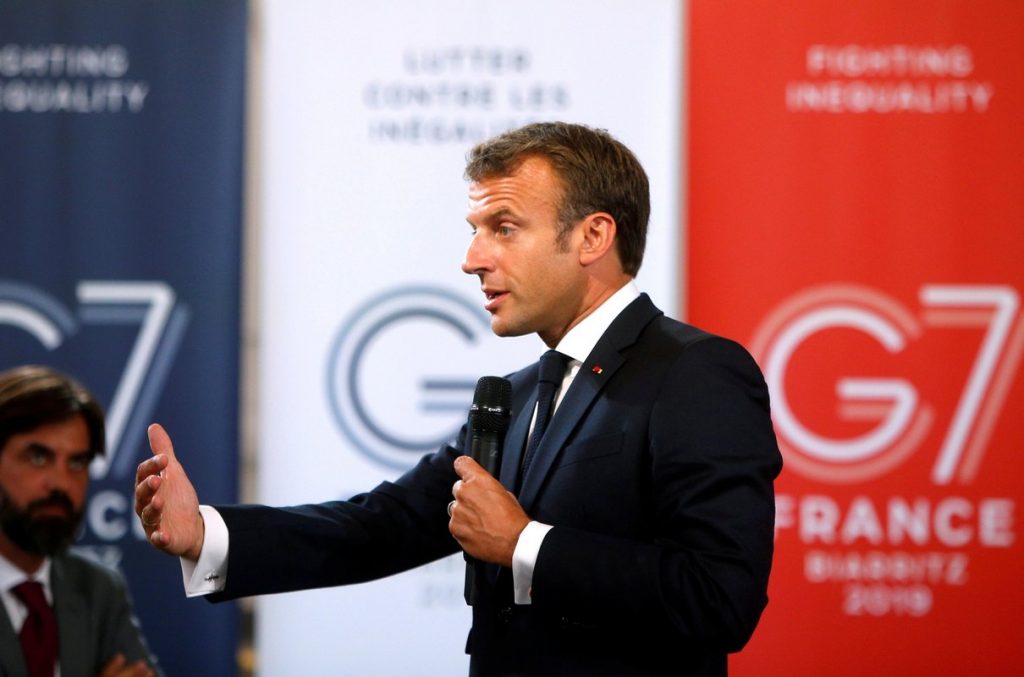After they wooed him in Taormina, Italy, in 2017, Donald Trump snubbed world leaders by dropping out of the Paris climate accords.
When they reached consensus in Charlevoix, Canada, a year later, Trump abruptly refused to sign their joint statement and escalated his trade war with personal insults.
And as the Nato allies gathered in Brussels last summer, summit organizers avoided another Trumpian eruption only by prewriting the meeting’s formal policy agreement and keeping it from the American president until the last minute.
Now, as French President Emmanuel Macron prepares to host Trump and leaders from some of the world’s leading democracies in the south of France this weekend, the United States’ closest allies have all but given up on the idea that the Group of 7 summits will produce the kind of unity and consensus about global issues that has been its hallmark for more than four decades.

“I know the points of disagreement with the US,” Macron lamented to reporters earlier this week as he acknowledged that the group would not even try to issue its usual joint statement, known as a communiqué. “It’s pointless.”
With the world facing ominous signs of a global economic slowdown and vexing political turbulence in hot spots around the world, Trump will arrive on Saturday morning in Biarritz, France, with a blunt tariff club in his hand. And that poses a challenge to America’s trading partners.
The leaders of France, Germany, Britain, Italy, Japan, Canada, and the United States will meet at the beachfront resort town amid escalating alarms over the health of the global economy, which is slumping under the weight of Trump’s multi-front trade wars.
In the decades after World War II, such a slowdown typically spurred American presidents to help lead a global response to prevent or mitigate recessions.
But Trump’s willingness to use tariffs as leverage over allies as well as adversaries has severely strained the relationships with other leaders.
On the day he was to leave Washington for the summit, Trump significantly escalated his tariff war, responding to China’s retaliation with another increase in his own levies on Chinese goods.
“China should not have put new tariffs on £75bn of United States product (politically motivated!),” the US president tweeted.
Meanwhile, his disdain for multilateral institutions like the United Nations, Nato, and the World Trade Organisation has undermined the expectation of cooperation and collaboration in any combined effort to confront China or other countries.
Despite the warnings of difficult headwinds, Trump continues to insist that the US economy has nothing to worry about.
In a tweet on Friday morning, he wrote that “the Fake News Media, together with their partner, the Democrat Party, are working overtime to convince people that we are in, or will soon be going into, a recession.”
Macron, as this year’s host of the G7 gathering, is not counting on the United States to be a constructive part of other discussions.
He has invited several leaders from African nations to be part of sessions on the challenges facing that continent.
The leaders of India, Australia, Chile, and Spain will participate in conversations about the environment, terrorism, nuclear weapons, and other issues.
French officials conceded that there is no hope that Trump joins the group in expressing its concern about climate change despite news that fires in the Amazon rainforest could accelerate the planet’s environmental crisis.
A few seemingly anodyne statements that diplomats from the seven countries prepared in advance will be released at the end of the summit, an EU official said, among them a document on the partnership between African nations and the G7 countries and one on biodiversity.
The New York Times
 Alghadeer TV Alghadeer TV
Alghadeer TV Alghadeer TV
